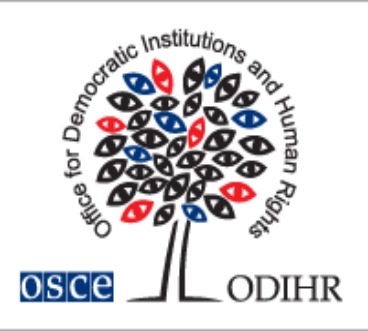Mr. CARDIN. Mr. President, I rise to commemorate the 30th anniversary of the creation of the Organization for Security and Cooperation in Europe’s—OSCE—Office of Democratic Institutions and Human Rights—ODIHR—one of the world’s most preeminent and comprehensive human rights protection bodies.
In 1990–1991, during the signing of the Charter of Paris for a New Europe that created ODIHR, a spirit of ‘‘profound change and historic expectations’’ prevailed among the United States, nations of Europe, and the Soviet Union. Revolutionary for their time, heads of state and governments resolved to ‘‘build, consolidate and strengthen democracy as the only system of government of our nations.’’ Further, by affirming that government’s first responsibility is to ensure the ‘‘protection and promotion of human rights,’’ they explicitly linked the full attainment of those rights with ‘‘the foundation of freedom, justice and peace’’ and set the standard for relations and security within and among nations.
Now, 30 years later, I am deeply concerned that the fundamental freedoms that ODIHR was founded to safeguard are in peril.
Authoritarianism is on the rise in Europe. Credible reports allege there are more than 750 political prisoners in Belarus, many detained for participating peacefully in protest of the fraudulent elections of August 2020 and the brutal government crackdown that followed. In Hungary, Viktor Orban’s administration continues its unprecedented consolidation of Hungary’s media, even as opposition figures organize to resist him. In many countries across the OSCE area, we have witnessed an alarming rise in anti-Semitism, racism, religious and other intolerance, and violence against women. These scourges have worsened the conditions imposed by the COVID–19 pandemic that disproportionately affect the most vulnerable in our communities.
With these and other challenges in mind, ODIHR’s valuable work to assist nations to live up to their commitments is more relevant and more needed than ever.
ODIHR is empowered by states to ensure respect for human rights, fundamental freedoms and the rule of law, and to promote and strengthen democratic institutions and tolerance. ODIHR actively partners with OSCE’s 57 participating states, civil society, and international organizations to support human rights defenders, enhance the independence of judiciaries, and promote human-rights-based policing. It offers legislative reviews and develops tools to support local government officials, including the Words into Action project, which enhances social inclusion within local communities and for which I proudly help secure funding.
The most visible demonstration of ODIHR’s collaboration with the United States is perhaps in the field of election observation, where its methodology is rightly seen as the gold standard in international election observation. Since its founding, ODIHR, the Department of State, and the U.S. Congress, through the OSCE Parliamentary Assembly, have deployed thousands of American citizens and legislators to observe the conduct of elections across the OSCE area, including in the United States. Since OSCE states pledged in 1990 to hold free and fair elections, elections observation has been recognized as one of the most transparent and methodical ways to encourage states’ commitment to democratic standards and is a hallmark of ODIHR’s work.
For nearly 30 years, ODIHR has organized Europe’s largest human rights review conference, the Human Dimension Implementation Meeting—HDIM—gathering thousands of representatives of governments, parliaments, and civil society for 2 weeks around the same table to review progress on human rights commitments. Unfortunately, the HDIM did not take place this September. Russia blocked consensus to hold the meeting, thereby denying the OSCE region’s nearly 1 billion citizens of a meaningful and sustained opportunity to hold their governments to account.
In September, Russia also prevented ODIHR from deploying a full and independent election observation mission to observe its Duma elections. Likewise, Russia was responsible for the closure of OSCE’s border observation mission, which provided valuable insight into the personnel and materiel flowing across Russia’s border into the temporarily occupied areas of eastern Ukraine.
ODIHR’s work is more important and relevant than at any time since its founding at the end of the Cold War. I would like to take a moment to extend my heartfelt appreciation to ODIHR’s 180 staff from 35 countries, upon whose dedication and professionalism we rely as we strive to realize an equitable and just future for all.
ODIHR is not only the human rights arm of the world’s largest regional security organization; it is also the independent body endowed to assist us as we pursue this important goal.
The phrase ‘‘Vancouver to Vladivostok’’ is routinely invoked to describe the organization’s broad geographical reach. However, it is perhaps ODIHR—and OSCE’s—revolutionary and comprehensive concept of ‘‘security,’’ which includes military security, economic and environmental cooperation, and human rights, that is its defining characteristic and most important contribution to world peace and the reason why we should all be celebrating ODIHR’s 30th anniversary this year and take steps to ensure its success for years to come.





